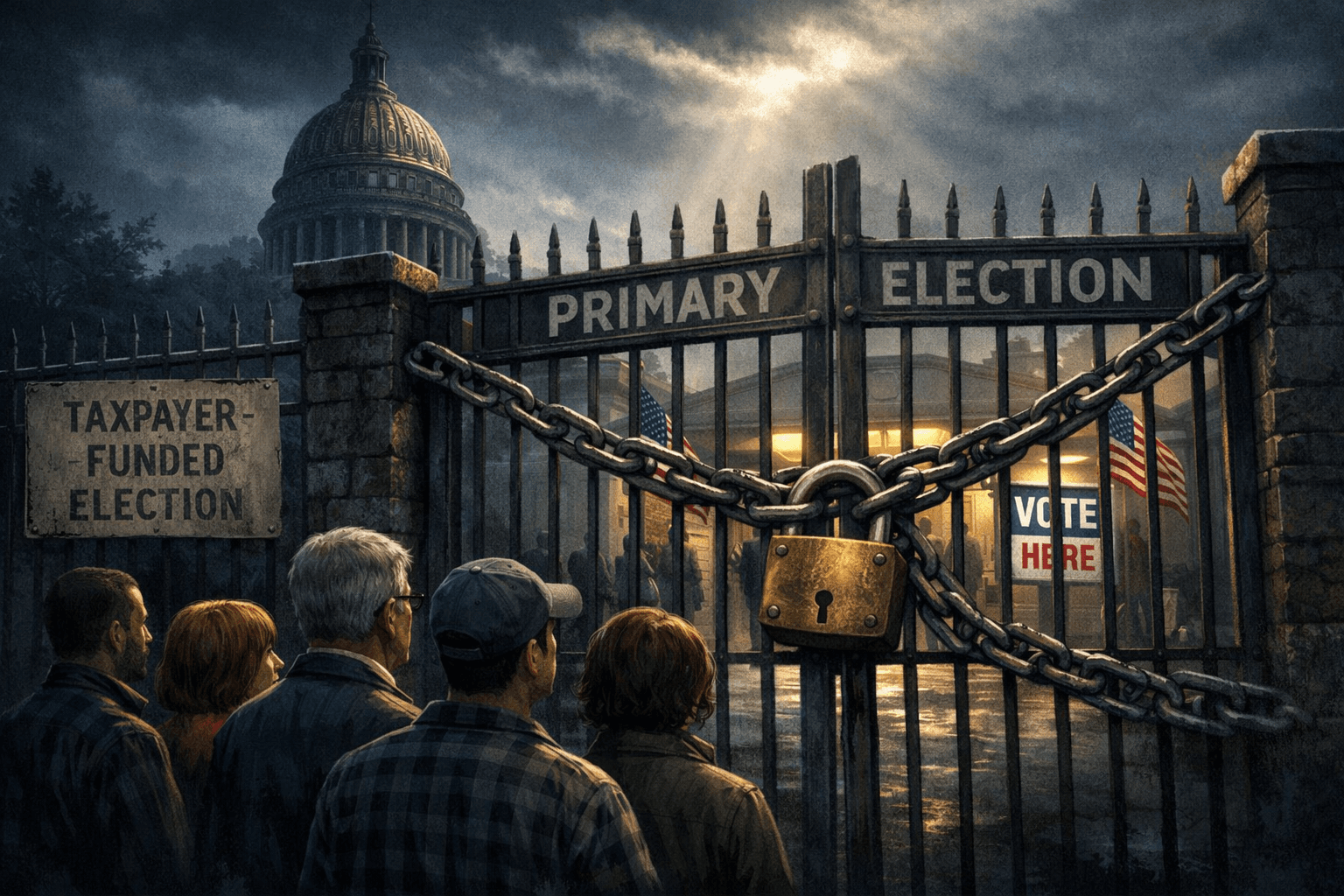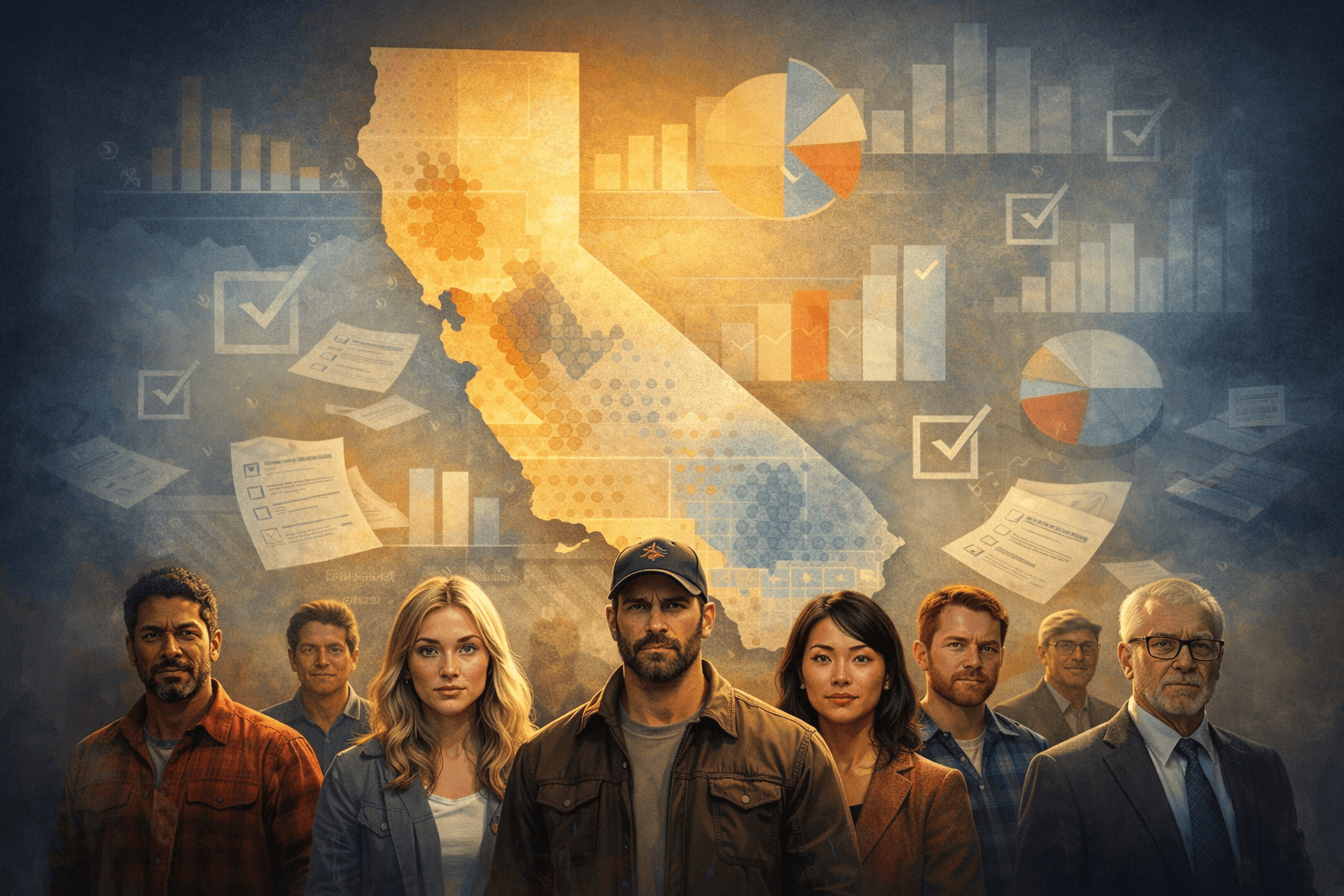Independent Voters Have a Question: Where is Congress?

Editor's Note: This piece originally published on The Independent Center's website and has been republished on IVN with permission from the organization.
The Big Picture
In the first two months of the Trump administration, we’ve seen a whirlwind of executive orders and headline-grabbing news. From sweeping immigration policies to regulatory rollbacks, the White House has wasted no time in flexing its executive power. Yet, amid this fast-moving political landscape, one major player has been conspicuously absent: Congress.
This absence is particularly puzzling given the Republican Party’s control of both the House and Senate. Historically, when one party controls both Congress and the White House, it presents a rare opportunity to push through significant legislative changes. In other words, the party in control of Congress gets to set the agenda. But so far, instead of driving policy or acting as a check on the executive branch, Congress has largely faded into the background.
Where are their proposals for major legislation? Have they provided any real oversight of President Trump’s policies, appointments, or executive actions? And for the representatives and senators who were elected or re-elected in 2024, what exactly is their legislative mandate from voters?
Congress’s reluctance to engage isn’t just an issue of political strategy—it’s a fundamental problem for our democracy. Executive orders may be an effective tool for immediate action, but they lack the long-term stability of legislation. The changes that President Trump is spearheading would be far more substantive, lasting, and legally sound if enacted through Congress rather than imposed through executive fiat.
Yet, rather than stepping up, Congress has remained passive.
Zooming In
Historically, Congress has not always taken a backseat to the executive branch—even when the same party controlled both institutions. In many pivotal moments, lawmakers have asserted their authority, acted as a check on the president, and made lasting contributions to governance.
For example, in 1964, despite deep political divides, key Republicans joined Democrats to pass the Civil Rights Act. It was not the result of a unilateral executive action but a hard-fought legislative victory that reshaped the nation.
During the Nixon administration, Congress took significant steps to uphold its authority. When Nixon threatened to withhold congressionally appropriated funds, lawmakers responded by passing the Congressional Budget and Impoundment Control Act of 1974, reinforcing their constitutional power over government spending.
The Watergate scandal provided another moment when Congress exercised its due powers. It was congressional Republicans—not solely Democrats—who ultimately pressured Nixon to resign, putting principle over party in defense of democratic norms.
More recently, Congress has also exercised its independence in the realm of presidential appointments. In 2009, Democratic senators raised concerns over President Obama’s nominee for Health and Human Services Secretary, Tom Daschle, after it was revealed that he owed back taxes. Their opposition ultimately led Daschle to withdraw from consideration. Similarly, in 2005, Senate Republicans blocked George W. Bush’s Supreme Court nominee, Harriet Miers, citing concerns about her qualifications and ideological worldview.
These examples highlight a fundamental truth: Congress is not merely a rubber stamp for the president. It has, at times, acted decisively to assert its role as a coequal branch of government. But today, that willingness to exercise power seems to be fading.
Instead of writing and passing meaningful legislation, members of Congress seem content to engage in political theater—tweeting their opinions, making partisan jabs during committee hearings, and largely acquiescing to the administration’s agenda. This is not the robust, independent Congress that the framers of the Constitution envisioned.
Key Takeaways
If real, lasting change is to occur, it must come through Congress—not merely through executive orders that can be reversed by future administrations or overturned in court.
Our system of government was designed with a balance of power as the centerpiece, ensuring that no single branch wields unchecked authority. That balance is maintained when Congress actively legislates, debates, and oversees the executive branch—not when it remains silent.
The current dynamic is concerning, but history has shown that Congress is capable of rising to the occasion. Lawmakers have the power to craft meaningful policies, push back when necessary, and ensure that governance is not dictated solely by the executive branch. However, they can only do so if they choose to step up and fulfill their constitutional role.
There is reason for hope. Public sentiment is shifting, with more voters demanding action from their representatives. Recent polling from the Independent Center suggests that 50% of Democrats want to see bipartisan policies succeed under Trump’s presidency. This signals that there is political space for Congress to act—to negotiate, to legislate, and to govern rather than merely react.
The challenge now is whether Congress will seize the moment or continue to abdicate its responsibilities. History suggests that lawmakers are capable of stepping up when the stakes are high. Indeed, the stakes are high. The question is: Will they do it now?
It’s time for Congress to move beyond rhetoric, beyond partisan soundbites, and beyond complacency. It’s time for them to lead.







